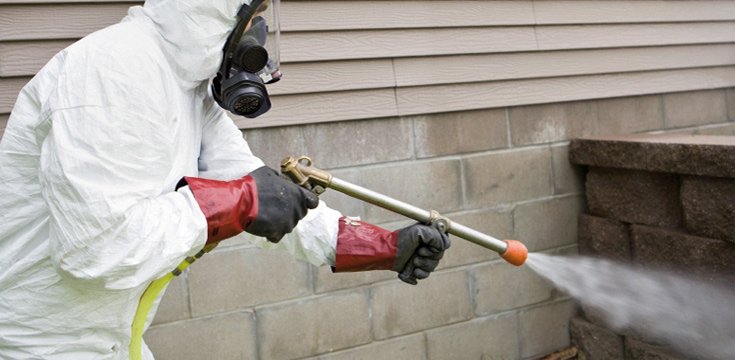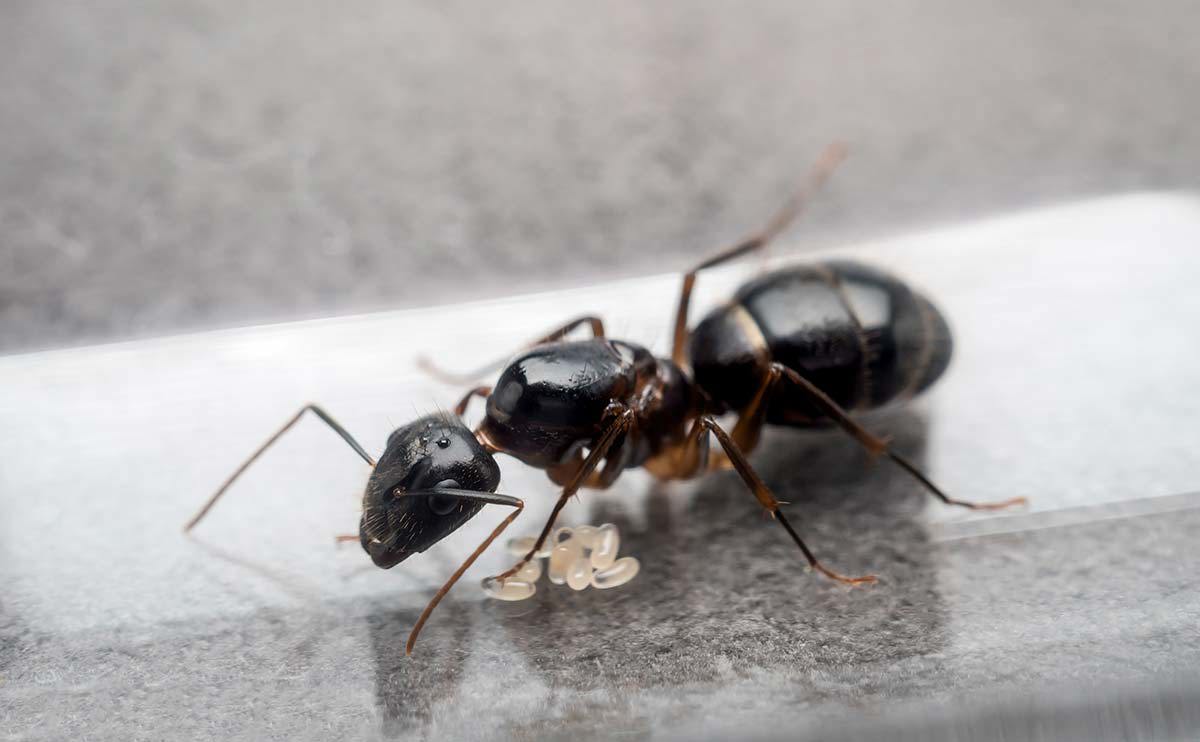Reliable Ant Control: Professional Services to Remove Ant Infestations
Reliable Ant Control: Professional Services to Remove Ant Infestations
Blog Article
Environmental Impact of Parasite Control: Harmonizing Performance With Sustainability
The ecological impact of insect control is an essential problem that needs a fragile balance in between accomplishing efficiency in handling pests and making certain sustainability of our communities. As we make every effort to safeguard our plants, homes, and wellness from the threats postured by pests, the techniques we use can unintentionally harm the environment. From the use of dangerous chemicals that leak into our soil and water to the unplanned consequences on non-target varieties, the consequences of standard pest control methods are far-reaching. However, there are emerging methods that provide wish for a more sustainable technique to pest management. These services not only objective to deal with the immediate bug issues however likewise take into consideration the long-lasting wellness of our earth.
Hazardous Chemicals in Insect Control
The usage of dangerous chemicals in insect control presents substantial ecological and wellness dangers that necessitate careful consideration and mitigation approaches. Chemicals, pesticides, and herbicides are commonly used to eradicate insects, but their widespread application can result in unintentional repercussions. These chemicals can pollute soil, water resources, and the air, influencing not just the targeted parasites yet additionally helpful insects, wild animals, and people.

To resolve these dangers, integrated pest administration (IPM) strategies are being promoted as a more lasting choice. IPM involves a mix of techniques such as biological control, environment manipulation, and the targeted usage of chemicals as a last resource (ant control stalling nc). By adopting an all natural strategy to pest control, we can minimize the environmental and health influences linked with unsafe chemicals while efficiently taking care of pest populaces
Effect On Non-Target Variety
Thinking about the unintentional consequences of pest control methods, the impact on non-target types is an important element that needs detailed examination. While insect control measures aim to target specific bugs, other organisms in the ecological community might be inadvertently affected. Non-target species, including helpful pests, birds, mammals, and also plants, can experience straight or indirect injury from pesticide applications or biological control approaches.
Insecticides created to fight a particular bug parasite might harm pollinators like or natural killers such as ladybugs. Biological control representatives, if not species-specific, can pose risks to unplanned targets, interfering with the eco-friendly balance.
To mitigate the effect on non-target types, integrated parasite management (IPM) techniques that stress a holistic strategy to pest control are recommended. These techniques focus on the use of eco-friendly practices, minimizing injury to advantageous microorganisms while efficiently handling pest populations. Conducting extensive danger evaluations and checking the end results of insect control efforts are necessary steps in protecting non-target varieties and advertising overall community wellness.
Soil and Water Contamination
Unintentional environmental repercussions of insect control approaches expand beyond affecting non-target varieties, with significant effects for dirt and water contamination - termite control services. Pesticides, herbicides, and chemical fertilizers made use of in parasite control can leach right into the dirt and contaminate groundwater, positioning a hazard to both terrestrial and aquatic ecological communities.
Water contamination is another crucial problem connected with bug control techniques. To minimize soil and water contamination from pest control activities, integrated insect administration methods that focus on sustainability and reduce chemical inputs are critical.
Air Contamination From Pesticide Usage
Direct exposure to airborne pesticides during agricultural applications positions a significant worry for air pollution control measures. Additionally, chemical drift, where pesticides are lugged by the wind to unintended locations, can lead to the contamination of close-by communities and water bodies.

Methods for Lasting Insect Control
In the world of farming practices, carrying out sustainable insect control methods is critical for maintaining eco-friendly equilibrium and protecting plant yields. Lasting pest control emphasizes making use of eco-friendly techniques to manage pest populations successfully while reducing injury to non-target organisms and environments. Integrated Insect Administration (IPM) is a commonly adopted approach that incorporates biological, social, physical, and chemical control techniques to attain long-term bug administration options.
Plant rotation and diversity are additionally effective methods to interrupt pest life cycles and develop less beneficial problems for pests to flourish. Inevitably, by integrating these lasting insect control methods, farmers can attain an equilibrium in between pest administration efficiency and environmental stewardship.
Final Thought
In final thought, the environmental impact of pest control methods should be meticulously taken into consideration to stabilize efficiency with sustainability. Damaging chemicals utilized in bug control can result in dirt and water contamination, air contamination, and damage non-target varieties - ant control. It is critical to implement lasting bug control approaches to minimize these unfavorable impacts on the environment and advertise a healthier ecological community for future generations
By embracing a holistic technique to pest control, we can decrease the environmental and health impacts linked with unsafe chemicals while effectively handling pest populations.

To alleviate the air contamination triggered by pesticide use, it is important to take on integrated parasite administration approaches that prioritize the usage of non-chemical insect control approaches, such as plant turning, natural killers, and resistant plant varieties. Sustainable insect control highlights the usage of ecologically friendly techniques to take care of pest populaces properly while minimizing harm to non-target microorganisms and ecological communities. Integrated Pest Administration (IPM) is an extensively taken on technique that incorporates biological, cultural, physical, and chemical control methods to attain long-term pest management options.
Report this page